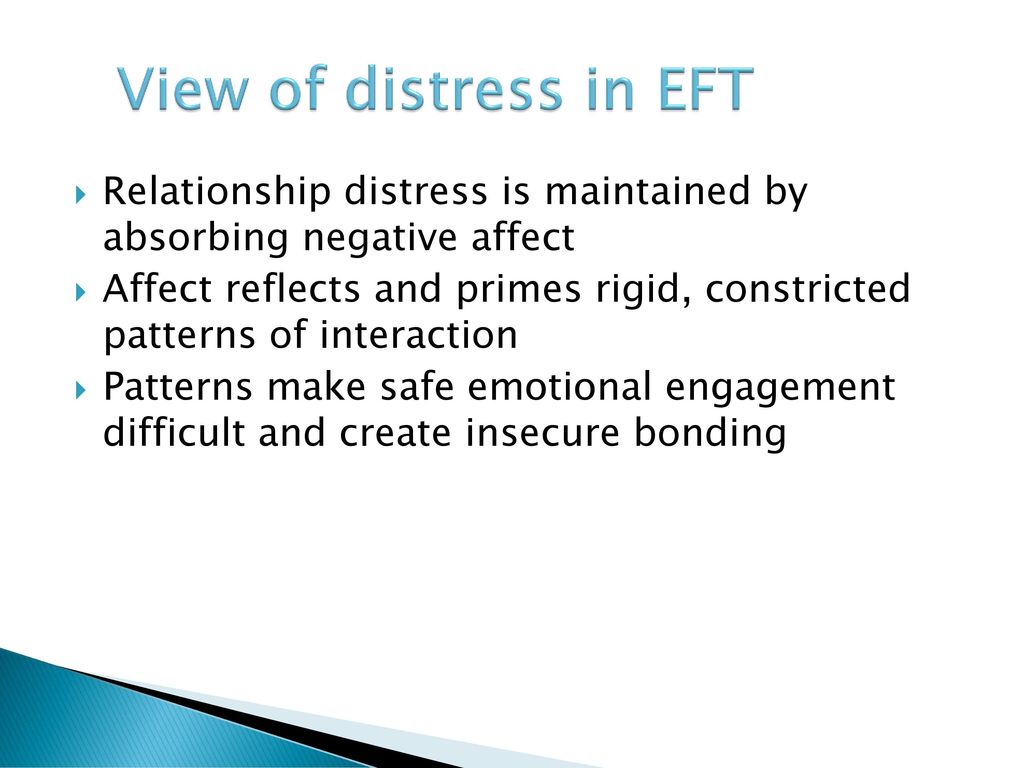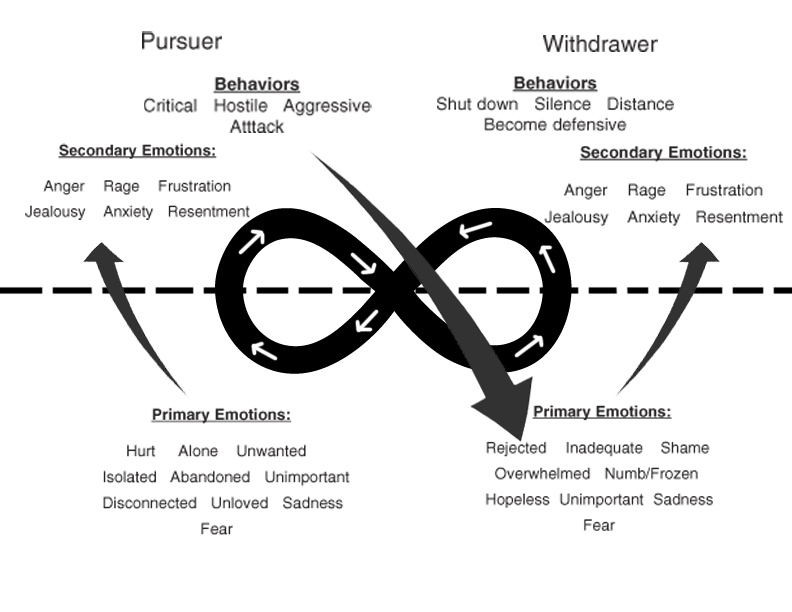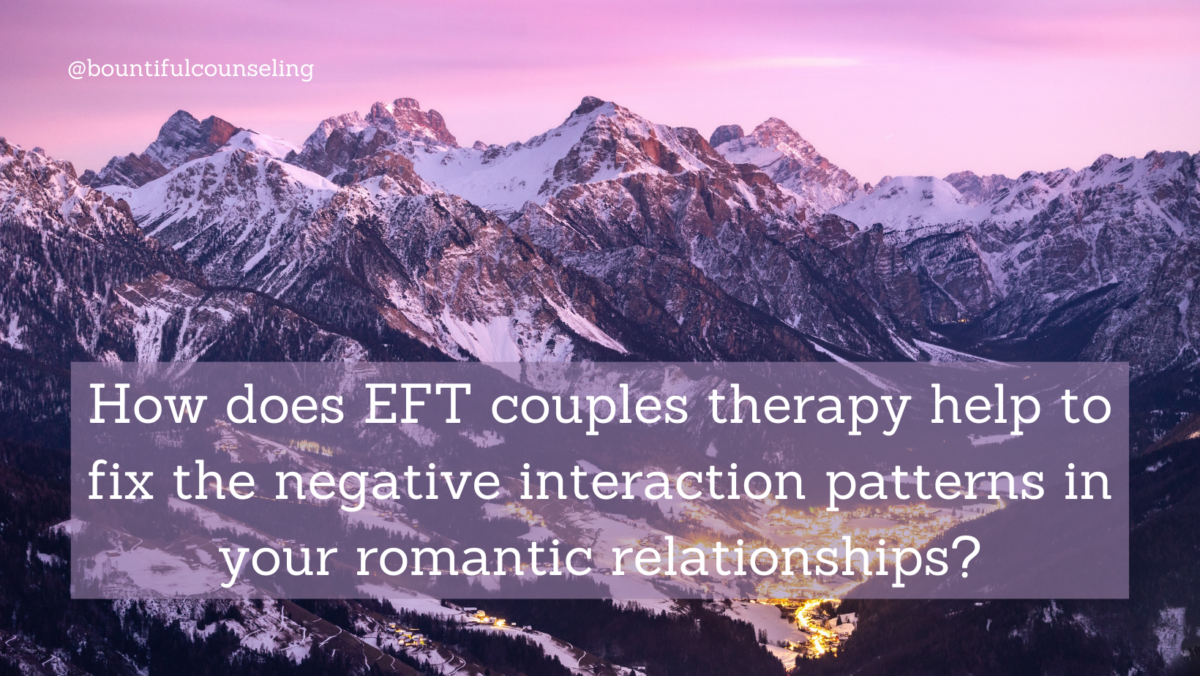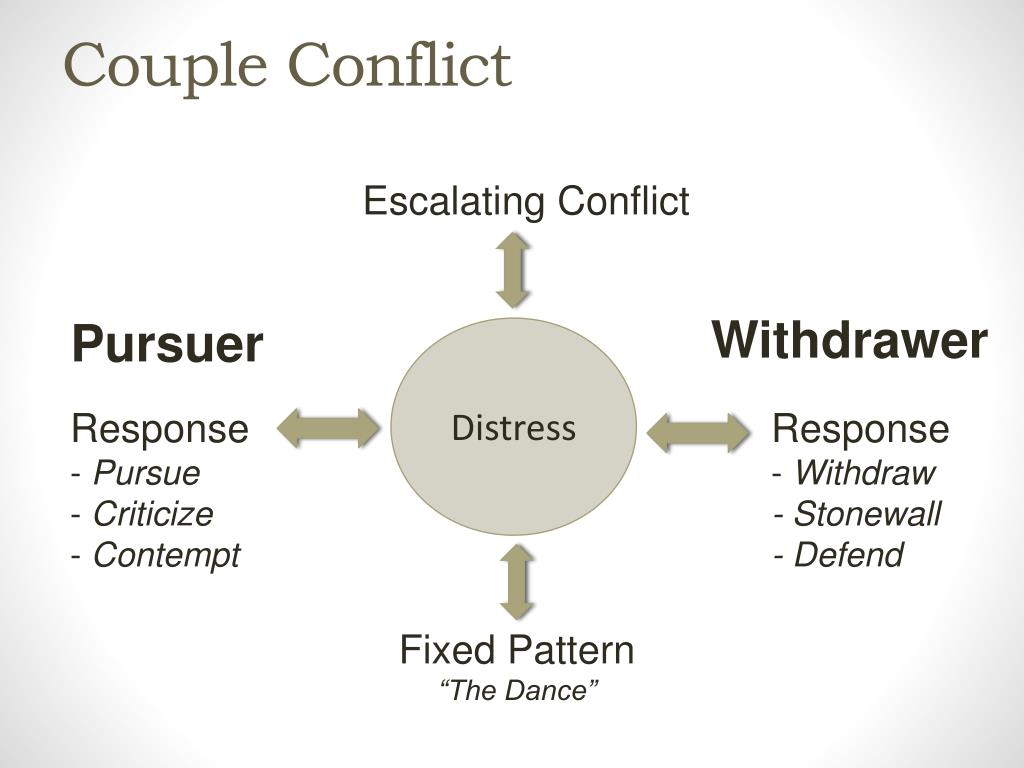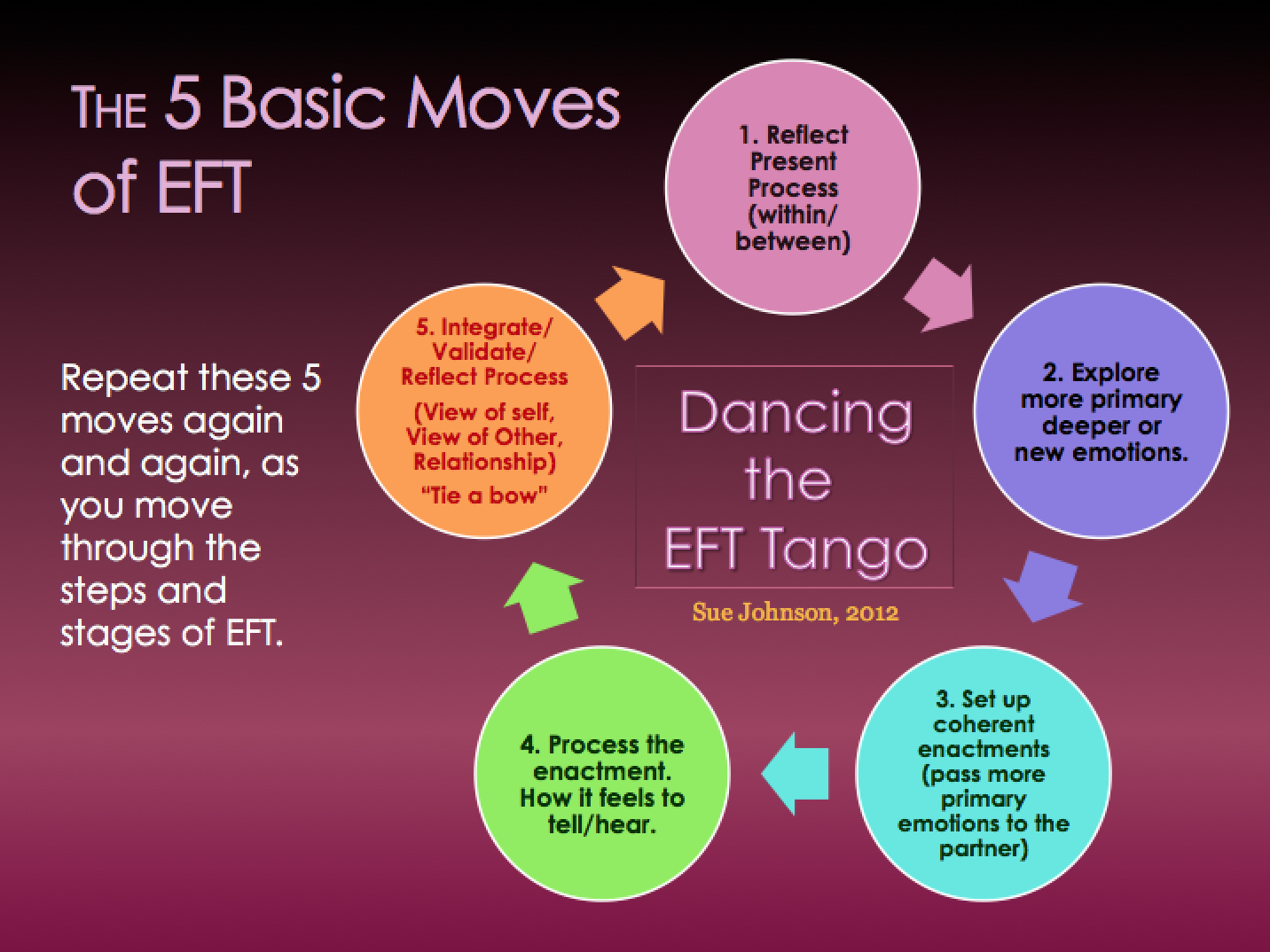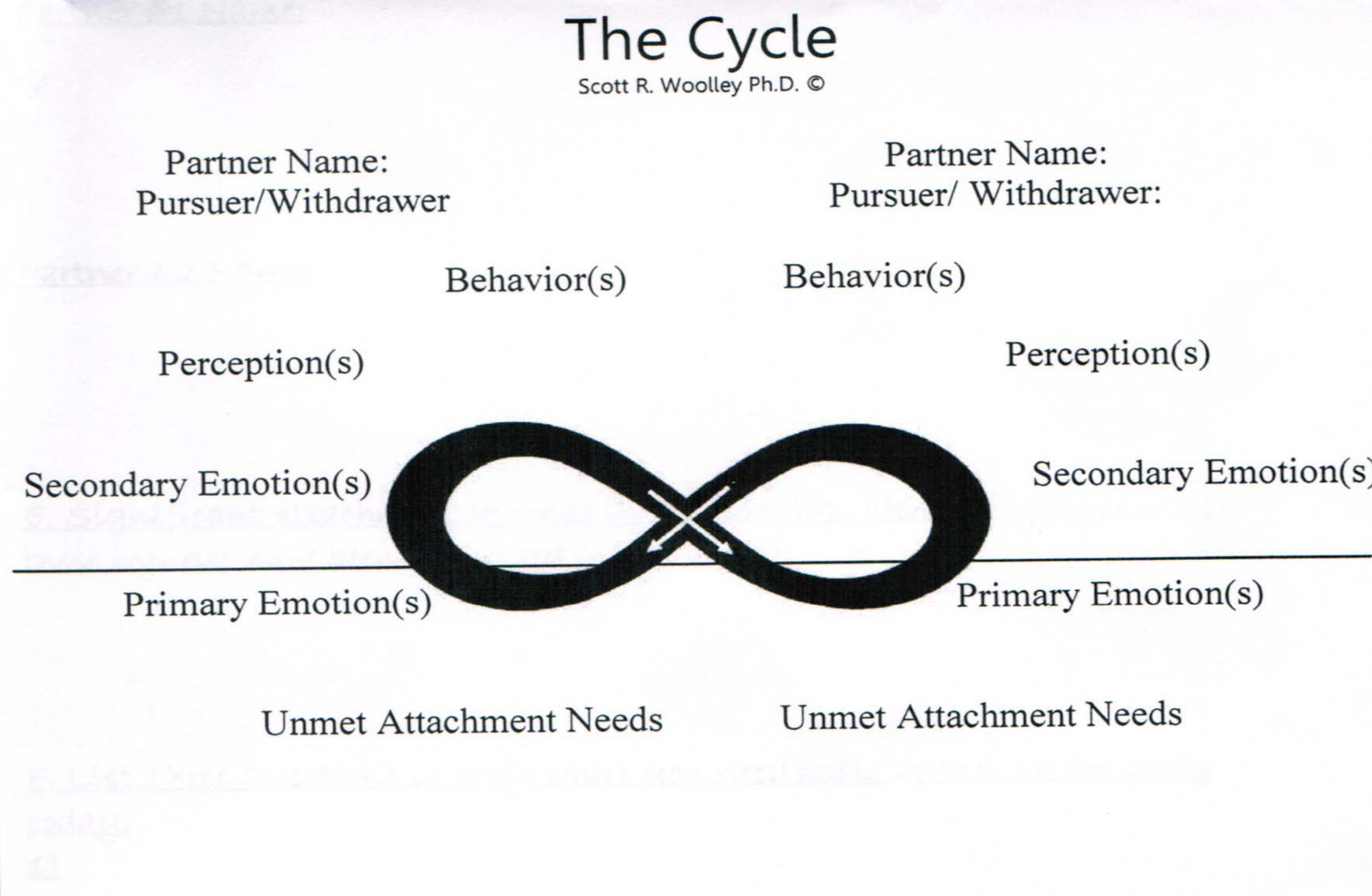Web in eft, recognizing negative interaction patterns that hinder emotional connection is crucial. Eft helps couples identify negative interactional patterns that contribute to relationship distress. Emotionally focused therapy for couples (eft) is attachment based and conceptualizes the negative, rigid interaction patterns and absorbing negative affect that typify distress in couple relationships in terms of. This indicates an anxious attachment style. By understanding the principles and techniques of eft, therapists can guide their clients towards creating and maintaining meaningful connections.
Emotionally focused therapy (eft) is one of the most effective forms of couples therapy. Hence, eft teaches us that we may already possess good communication skills. In the first stage of eft, your therapist helps you and your partner identify negative patterns within your relationship. Web the first eft step is focused on identifying negative interaction patterns that contribute to conflict, identifying negative emotions related to attachment, and reframing those feelings. Web emotionally focused therapy is based on the concept that distress in intimate relationships is often related to deeply rooted fears of abandonment, as an individual’s emotional response to.
Thus, in eft, the therapist privileges emotion. Web the first eft step is focused on identifying negative interaction patterns that contribute to conflict, identifying negative emotions related to attachment, and reframing those feelings. Hence, eft teaches us that we may already possess good communication skills. Web emotionally focused therapy (eft) can help you identify those relationship patterns that may be causing you friction, so that you can develop skills to manage them. Web in eft, recognizing negative interaction patterns that hinder emotional connection is crucial.
Its goal is to create a more secure emotional attachment between two people. The therapist aims to guide the distressed couple away from rigid, harmful, and destructive ways of reacting and toward sensitive, flexible ones that support intimate and secure bonds. Hence, eft teaches us that we may already possess good communication skills. The therapist works with the individuals to identify the negative patterns of interaction that are contributing to relationship challenges, and to identify the underlying emotional needs and attachment styles that are driving these patterns. Web the first eft step is focused on identifying negative interaction patterns that contribute to conflict, identifying negative emotions related to attachment, and reframing those feelings. Web patterns of interaction: Secondary emotions are emotions that are evoked in. Web eft approaches are based on the premise that human emotions are connected to human needs, and therefore emotions have an innately adaptive potential that, if activated and worked through, can help people change problematic emotional states and. In the first stage of eft, your therapist helps you and your partner identify negative patterns within your relationship. Web since emotions are so impactful, emotionally focused therapy can be a beneficial tool, especially for relationships. Emotionally focused therapy for couples (eft) is attachment based and conceptualizes the negative, rigid interaction patterns and absorbing negative affect that typify distress in couple relationships in terms of. This process helps couples better see how their insecurities and fears affect their relationship. Web eft involves three structured stages: Emotionally focused therapy (eft) is one of the most effective forms of couples therapy. When couples feel such safety in their relationship, they grow far more comfortable with navigating difficult situations and feelings.
This Indicates An Anxious Attachment Style.
Eft recognizes that emotional distress often arises from negative patterns of interaction within relationships. Web emotionally focused therapy (eft) can help you identify those relationship patterns that may be causing you friction, so that you can develop skills to manage them. Through therapy, couples learn to interrupt these patterns and develop new, healthier ways of relating to each other. Web since emotions are so impactful, emotionally focused therapy can be a beneficial tool, especially for relationships.
Hence, Eft Teaches Us That We May Already Possess Good Communication Skills.
Web eft approaches are based on the premise that human emotions are connected to human needs, and therefore emotions have an innately adaptive potential that, if activated and worked through, can help people change problematic emotional states and. Through skilled observation, therapists help couples unearth destructive cycles and understand the underlying emotions that drive these patterns. Web eft looks at how individuals process their experiences, particularly their emotional responses, along with how partners interact together in patterns. Web emotionally focused therapy is based on the concept that distress in intimate relationships is often related to deeply rooted fears of abandonment, as an individual’s emotional response to.
Its Goal Is To Create A More Secure Emotional Attachment Between Two People.
Thus, in eft, the therapist privileges emotion. Primary emotions are the first feelings a person is having in response to what is happening around them. It works because it helps couples improve their communication while also working with each other’s attachment styles. Each partner’s relatively predictable relational role is usually related to their underlying attachment style (secure, avoidant, or anxious).
Eft Helps Couples Identify Negative Interactional Patterns That Contribute To Relationship Distress.
Web in eft, recognizing negative interaction patterns that hinder emotional connection is crucial. Web eft conceptualizes relationship conflict as a cycle of negative interaction rooted in emotional processing from our need for close relationships. Secondary emotions are emotions that are evoked in. Web eft distinguishes between primary emotion and secondary emotion.
